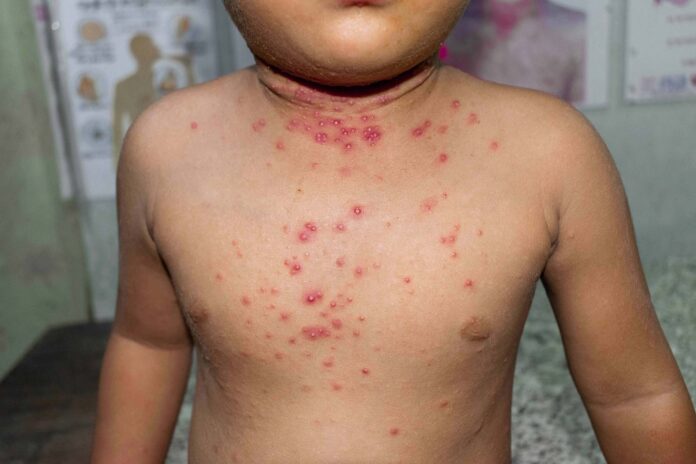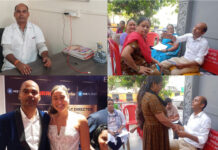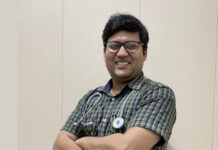
The virus outbreak i.e. monkey pox, has off late been making news and been a cause for concern. The worry is much greater when it comes to children, and it is important to know some basic facts about this new outbreak, before getting unnecessarily anxious.
Monkey pox has several symptoms common to other viruses, including ‘hand, foot and mouth disease’ or measles and chicken-pox, and it is best to consult a paediatrician for a correct diagnosis. This virus is contagious, and usually spreads through close physical contact. It can take between 5 days to 3 weeks after exposure, for symptoms to become evident.
Though children can contract this virus, parents can rest assured that in nearly all children the risk is low.
SYMPTOMS:
- Fever
- Shivering / Chills
- Headache
- Muscle Soreness
- Backache
- Fatigue
- Swollen lymph nodes
- Rash or blisters that appear on the face, in the mouth or on other parts of the body (hands, feet or chest)
The rash is the most significant symptom. Like in measles and chicken-pox, the rash turns into boils. They become reddish, filled with fluid/pus, turn into scabs and eventually fall off. After this, the skin heals.
HOW IT SPREADS:
- Direct contact with rash, scabs or body fluids
- Touching, hugging, cuddling an infected person
- Prolonged face-to-face contact (through respiratory particles, while breathing in close proximity)
- Touching contaminated items like bedding, clothing or objects (toys, pillows) previously touched by a person.
- Foetus getting it within the womb (via placenta)
- Getting scratched or bitten by an infected animal or eating contaminated meat.
An infected person may keep transmitting the virus from the time s/he contracts it, until the skin has healed after the rash disappears.
RISK LEVEL OF MONKEYPOX: PREGNANT WOMEN & CHILDREN
- Compared to COVID-19, monkey pox takes much longer to transmit to another person, so one need not panic.
- It is still quite rare, and this makes it a less dangerous illness.
- Most people are known to heal by themselves but, in exceptional cases, pneumonia, eye or brain infections can occur.
- A foetus may contract it from the mother, in the womb.
- Pregnant women and children below 8 are at a greater risk for severe disease.
VACCINES IN INDIA:
As we have witnessed in the case of COVID-19, vaccines help patients get a less severe form of the virus, and they tend to recover better and faster.
In the case of monkey pox, 2 vaccines have been approved and licensed by the FDA (Food & Drug Authority) – JYNNEOS and ACAM2000. They not yet available in India.
Pregnant women and nursing mothers are not eligible for these vaccines. The former can receive treatment via monoclonal antibodies, if they contract the virus.
DO’s & DON’Ts for PARENTS:
It is only natural that parents may feel worried about this new virus. Therefore, some simple precautions and steps can ensure that the virus does not spread further, and children and adults are safe.
Frequent hand washing:
It is essential that you and your children maintain good hygiene practices, in order to help contain the virus before it spreads. Washing hands with a mild soap or an alcohol-based sanitizer can prevent most infections anyway.
Avoiding close contact with suspected or confirmed cases:
If someone has been diagnosed with the monkey pox virus, it is safest to avoid close contact.
Little children, pregnant women and nursing mothers should not have any physical interaction with the person. Touching any objects used by that person is a big ‘No!’.
Speak to your child’s doc:
If any person in the family seems to have a boil, rash or symptoms listed above, speak to your doctor immediately. A blood test maybe recommended, to confirm whether it is monkey pox or something else. Presently testing is done by government authority only.
In a population of over 1 billion, 8 or 9 cases is still a very small number. This reflects how one need not get overly anxious or panicky about the situation. By taking basic precautions one can stay safe and healthy.
Dr. Avash Pani (Consultant Paediatrician)
Apollo Cradle & Children’s Hospital – Kondapur.




















